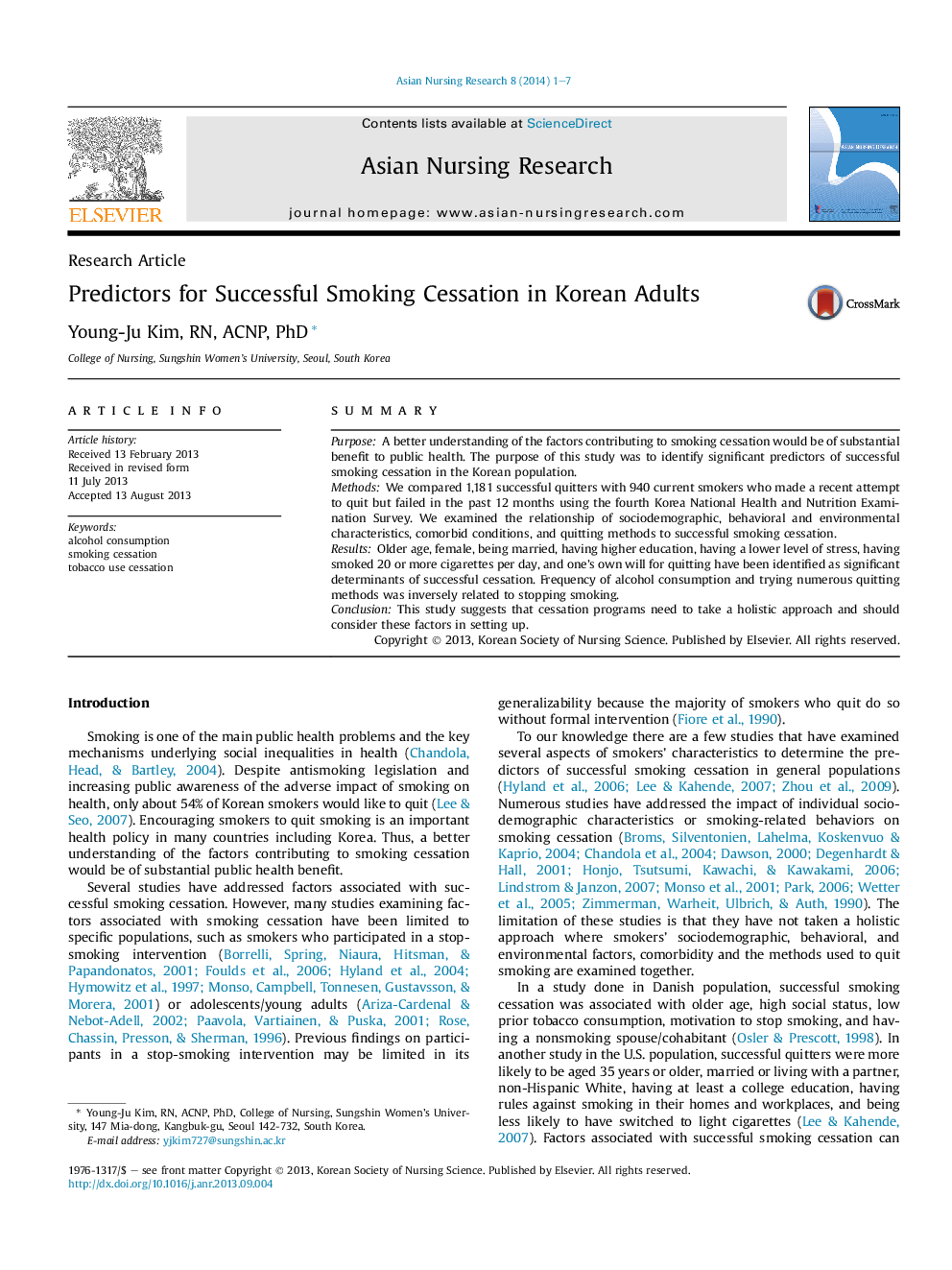| Article ID | Journal | Published Year | Pages | File Type |
|---|---|---|---|---|
| 2645211 | Asian Nursing Research | 2014 | 7 Pages |
SummaryPurposeA better understanding of the factors contributing to smoking cessation would be of substantial benefit to public health. The purpose of this study was to identify significant predictors of successful smoking cessation in the Korean population.MethodsWe compared 1,181 successful quitters with 940 current smokers who made a recent attempt to quit but failed in the past 12 months using the fourth Korea National Health and Nutrition Examination Survey. We examined the relationship of sociodemographic, behavioral and environmental characteristics, comorbid conditions, and quitting methods to successful smoking cessation.ResultsOlder age, female, being married, having higher education, having a lower level of stress, having smoked 20 or more cigarettes per day, and one's own will for quitting have been identified as significant determinants of successful cessation. Frequency of alcohol consumption and trying numerous quitting methods was inversely related to stopping smoking.ConclusionThis study suggests that cessation programs need to take a holistic approach and should consider these factors in setting up.
